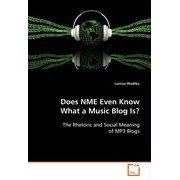
I recently finished reading Matt Mason's book The Pirate's Dilemma and I was struck by the positive tone of his analysis of the act of the piracy. He looks at piracy at various points in history, but with most of the focus on the latter half of the 20th century and the beginning of the 21st, and he views it not as an anti-establishment act but as a fantastic capitalistic force. Mason is very careful to reiterate time and again that he is not proposing a digital communism (you wouldn't want to be blacklisted by McCarthy now would you?); instead, he views pirates and their acts as business opportunities and sources of healthy competition for the capitalist system. Naturally, I have several problems with his argument.
While Mason's subtitle is How Youth Culture Reinvented Capitalism, I would argue that capitalism isn't reinvented in this case - it is merely sped up. Ideas are just moving about the world at a faster rate and we're cycling through from one to the other at hyperspeed. We as the human race are not nearly as novel and progressive as we like to think. The way I see it we're going around in circles but the circles are getting slightly larger every time, encompassing more cultural objects and practices for market exploitation. Subcultures are being snapped up by profiteers at a breakneck speed, but thankfully, it seems there will always be some truly innovative, interesting people who will keep abreast of it and give the best chase they can. Just as media conglomerates buy up popular web applications and sites, new ones spring up to fulfill the needs of those avoiding the trappings of a financial consumer-based system. This reinvented capitalism is merely pushing youth culture further and further underground until it pops up the other side in China, where it can be mass-manufactured by children.
It's the classic case of coopting the cool kids, which has gone on for as long as there have been cool kids. Coolhunting kills what it finds, and is thus self-perpetuating, but hardly revolutionary. Reinvention implies creativity and innovation, which are exactly what is relinquished when subcultural activities go corporate and depend on advertising dollars. Capitalism at its very core has always been based upon creative and innovative people with the ultimate goal of making financial profit; you can't reinvent the wheel, and you can't reinvent capitalism.
Mason contends that piracy is good for the market because it demonstrates what people really want, and thus what can be most profited by, and then forces the bigger corporations to alter the way they operate to regain the market share they overlooked or misestimated in the first place. It's a rather utopian attitude that ignores the disgusting hypocrisy in branding a revolution. We've always liked to be inspired by renegade heroes from Robin Hood to Captain Jack Sparrow, and Mason plays off this warm and fuzzy feeling of DIY pirates fighting the system, but in his version, the best heroes end up just as corporate as their enemies - Robin Hood trades in his jerkin for a business suit and becomes an executive. Success is still only measured in dollars, not in strengthened community, not in ethical improvement, not in intellectual stimulation.
Another issue that needs to be explored in relation to this book's case is that of value. Most of the time, especially as capitalism grows older, value is an artificial concept. Money itself is a primary example of artificial worth - there is no inherent worth in the bits of metal and paper in our wallets. It is a universally agreed upon semiotic system that is no better or no more sophisticated than a game of Monopoly. Rules create value. Mason is rather excited by the idea of a 3D printer, which he mentions several times throughout his book and which is a machine which can basically produce anything you program it to - for example, you could print yourself your own pair of sneakers. Mason appears to see this invention, which can even replicate itself, as a boon for third world countries and those who don't have access to the expensive means of production. Does he not see the potential disaster for the very capitalist system he's championing? If anyone can print any object indefinitely, including the means of production itself, what worth will anything have in the current system based on artificial value assigned according to supply and demand? Does he not remember the financial inflation disaster of the Weimar Republic that ultimately led to Hitler? You can't just print more money to make everyone richer; unfortunately, our system doesn't work that way. And hasn't this easy self-replication and self-distribution already proven its own results in the arena of MP3 filesharing?
People are increasingly less willing to pay for music, movies, etc. that can be available for free. This phenomenon is displaying in a rather palpable way the value placed on art and cultural objects in this time period. There's no denying that art is subjective and its very worth is bound up in that subjectivity. What makes Damien Hirst's pieces of art worth millions? An agreement by the elite (those with the capital and power to sway the masses) that it is valuable. Are we moving into an era in which we all realize this artificial worth? Will we end up only paying for those things with immediate practical worth like food, shelter or fuel? What kind of society will it be if art is perceived as public property and not a commodity? Without patronage, artists may cease creation in favour of actually making money doing something more profitable to survive. Or art may end up as strictly a hobby or career sideline, as it is for several artists already. Honestly, I don't know if either of these options are good ones or not. All I know is that a world without art of any kind would be one without value, artificial or otherwise.
Mason notably uses several examples from the music world for his argument, including the musical styles/subcultures of punk, disco, house, dub, and hip hop, and musical issues like that of pirate radio, fanzines, and filesharing. Though I didn't have too much of a problem with Mason's writing style for the most part, I did feel cheapened by his little tutorial sessions at the end of many of these sections in which he "teaches" you how use these subcultural concepts to become a successful capitalist. For example, he takes you through how to use the DJ concept of the remix to "remix" your own business idea, comparing your target market audience to a dancefloor crowd. These rather useless "lessons" read like those crappy business how-to books that use ridiculous analogies to sell simple ideas to businesspeople (Ping the Frog, anyone?). Even more revolting is the "game theory" portion at the end of the book. No wonder Seth Godin provides the pull quote on the cover of the book.
Summing up the crux of Mason's flawed argument, his entire chapter on hip hop seems completely contradictory - Mason maintains hip hop is the perfect subculture because it is both underground and market savvy. These two ideas don't gel for me. Either you're anti-establishment or you're not, and that's the true pirate's dilemma if there is one in this argument. If DIY start-up FUBU (which stands for "for us, by us") needs massive hip hop celebrity LL Cool J to give it the kick in visibility it needed to become a multi-million company, how is it escaping the celebrity endorsement that GAP used him for at the exact same time. Can you punk a system by using the same system that you initially refused to do so? And who is "us" in FUBU's context now that the creators and owners of it are clearly not in the same position they were in when they began the enterprise? Would FUBU be okay with someone selling knock-offs of its products in the name of "punk capitalism"?
Selling out becomes an inevitability in a system where seemingly impractical goods and services depend on those in power to bestow worth upon them. Different audiences have different value systems. Once Pete Tong and Trevor Nelson made the move from pirate radio to BBC radio, the audience changed along with the artificial value in terms of subcultural capital - once everyone can access the same music and the underground moves up a floor, the original value disappears in favour of a general market value. We're dealing in meaning, not numbers. Selling out becomes subculturally bankrupt in order to be financially successful.
As sad as it is to admit, human beings are greedy and self-centred and haven't shown any growth or progress in overcoming this problem. It is why communism failed. It is why capitalism hurts more people than it helps. Overall, Mason's book is a fairytale story of cooptation, not of beating the system. Don't pretend that being a renegade can coincide with being a profit-driven mogul - you haven't bucked the system, you haven't even changed or reinvented it. There isn't much of a leap between DIY pirate to corporate pirate. Piracy just seems to be a method of putting a neon sign around the loopholes in the system, so that those in power can continue to bulk up the regulations and stitch these holes shut. It seems the only dilemma in sight is a false one in which our only two real choices seem to be exploitation for profit or a largely ignored labour of love. Perhaps it's not so false after all.
See The Pirate's Dilemma Web site for more of Matt Mason's "punk capitalism."





















































2 comments:
I read your brilliant post all the way through and I agree with everything you said. I want you to know how much I enjoy READING your posts... best commentary and ideas of any "mp3 blog" I've ever read. Keep it up, you're awesome!
Thank you so much urban gypsy. I really appreciate it.
Post a Comment